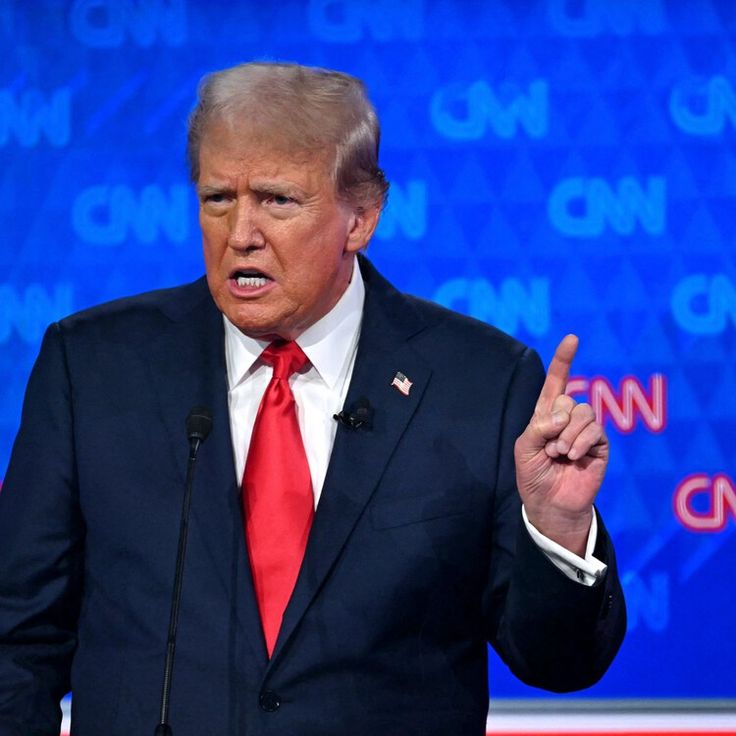As the upcoming U.S. presidential election approaches, political tensions are intensifying, with the potential for a Donald Trump victory casting a significant shadow. For many, this prospect stirs deep concerns about legal and social consequences, especially regarding the likelihood of sweeping pardons connected to the January 6 Capitol riots. The possibility of these pardons—viewed by some supporters as rightful justice and by others as troubling precedents—has made many Americans increasingly uneasy. This includes families directly affected by the January 6 events, who fear that a Trump victory and subsequent pardons could leave them vulnerable to retaliation, further destabilizing their communities.
The Impact of a Potential Trump Win
The 2024 presidential race has intensified focus on Trump’s potential impact, with people across the political spectrum acknowledging the far-reaching changes his victory could bring. Supporters view his potential win as a chance to restore conservative values and address longstanding grievances. However, many Americans, particularly those impacted by January 6, fear his victory could usher in intensified government polarization and weakened democratic standards. A primary concern revolves around Trump’s stance on those convicted for their roles in the Capitol riots. Trump has voiced sympathy for those charged in multiple public statements, even suggesting he might pardon some convicted January 6 participants. For certain families, this possibility of widespread pardons fuels severe concerns that it could encourage far-right individuals who might interpret these pardons as a validation of violent or extremist actions.
Families Impacted by January 6 Fear Reprisals
For numerous wasn’tes, January 6 was more than a political turning point; it was a deeply traumatic event that profoundly changed their lives. Some families have opted for anonymity or even relocated to new areas, fearing retaliation from rioters or other radicalized individuals. The prospect of a Trump pardon could intensify these fears, as it might encourage some individuals who were present that day and have since evaded prosecution, potentially motivating them to act against perceived adversaries.
Security and law enforcement experts caution that pardoning January 6 offenders might lead to increased targeting of witnesses, law enforcement officers, and even journalists who were involved in the Capitol riot investigations. Families involved in the investigation or impacted by the riots live with the worry that a pardon might encourage harassment or violence from pardoned individuals or those who sympathize with them.
Data Shows Increased Security Concerns Amid Polarization
Surveys and research show that the country is currently as polarized as ever. A recent Pew Research study reveals that over 60% of Americans view the political divide as a severe threat to democracy, with these concerns growing as incidents of political violence continue to rise.
A 2023 report from the Department of Homeland Security emphasized that domestic violent extremism is among the leading security threats in the United States, with politically motivated violence having sharply increased since 2020. The report pointed to the January 6 events as a critical flashpoint, resulting in over 1,000 arrests and establishing it as one of the most significant criminal investigations in U.S. history. However, the prospect of pardons for those convicted presents a distinct risk of rekindling tensions and potentially encouraging further actions from like-minded individuals.
What Would Pardons Mean for Justice and Accountability?
The possibility of a mass pardon raises essential questions about accountability and justice. For families of individuals who were injured, traumatized, or otherwise affected by the January 6 events, such pardons could represent a significant miscarriage of justice, effectively nullifying the repercussions for those who violently attempted to undermine the democratic process. Legal scholars contend that granting pardons to individuals involved in the Capitol riots would establish a troubling precedent, potentially suggesting that similar actions could go unpunished in the future if it serves political interests. Moreover, this situation could exacerbate the prevailing distrust in institutions, especially if the pardons are seen as politically motivated. There is widespread concern that pardoning January 6 participants could erode public confidence in the judicial system and lessen the perceived gravity of the Capitol riots. This situation might also pose significant challenges for law enforcement and the judicial branches as they navigate the consequences of such decisions.
Protective Measures and Community Reactions
Families of January 6 witnesses, law enforcement officials, and journalists who reported on the Capitol riots are increasingly adopting protective measures. Advocacy groups have reported a significant increase in requests from families for assistance with relocation, seeking online anonymity, or collaborating with local police to ensure their safety. Certain advoLawyers’ups, such as the Lawyers’ Committee for Civil Rights, have begun providing legal support and resources to those at risk, highlighting that the public threat level has increased for individuals involved in the Capitol riot prosecutions. “this community” typically adopts a “wait and see” stance while also preparing for potential worst-case scenarios. Safety plans, emergency protocol training, and community-building initiatives have become standard practices among groups that feel particularly vulnerable. These measures aim to help maintain peace amid the looming threat of political instability.
A Polarized Nation Holds Its Breath
The prospect of Trump returning to the White House, along with the potential for January 6 pardons, has deeply divided the nation. For some, these pardons symbolize a chance to “move on,” while others worry they could increase instability. For families directly affected by January 6, the possibility of a Trump victory transcends political implications—it becomes a matter of survival.
In a nation already grappling with political division, a victory that includes the potential for pardoning individuals involved in the Capitol riots could exacerbate tensions. Families and communities that have endured the fallout from political violence now confront the unsettling prospect that justice may be fundamentally redefined in the aftermath of a single election. The months ahead will be crucial as these families and others closely observe developments, hoping for resolutions prioritizing security, justice, and unity for all Americans.

Leave a Reply